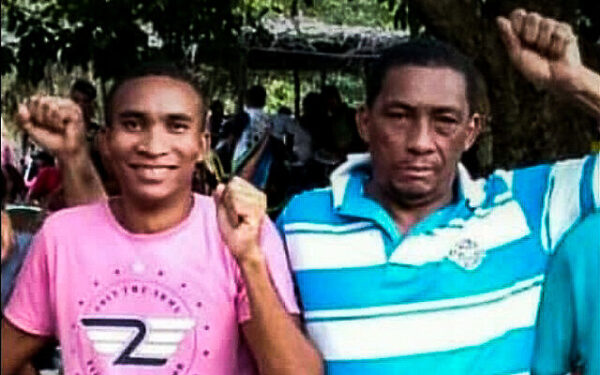On 5 January the first killings of land rights activists in 2020 took place in Comunidade do Cedro, a small community about 170 kilometers from Sao Luis in the state of Maranhão.
Celino Fernandes and his son Wanderson de Jesus Rodrigues Fernandes were shot dead by four unidentified gunmen. The killing took place early in the morning when the 4 heavily armed men broke into the family home and shot Celino and Wanderson dead in front of their children and grandchildren. The killers, who were wearing hoods, were dressed as members of the Civil Police and said they were carrying out an arrest warrant.

In 2019 Celino, Wanderson and three other farmers, including Celino’s daughter, Adriana de Jesus Rodrigues Fernandes, who is president of the Quilombola Association of Cedro, had been arrested and held for 70 days in the regional prison in Viana on spurious charges of criminal activity. The central issue is attempts by the agents of large landowners to fence off and take over public lands which are being used by the farmers to support their families.
Celino and the other farmers had repeatedly complained to the authorities that they were being harassed and intimidated. The community has repeatedly been the victim of false accusations; police investigations and criminal charges all of which amounted to a consistent campaign to force them off the land.
The land in question is the subject of an environmental protection order which recognises the land as common land for use by the community.
There is no doubt that this whole process of criminalisation of the community is just a smokescreen to hide the real reason for the persecution – the struggle for ownership of the land. The purpose of the violence is to create a climate of fear so that the farmers will give up their struggle for the land.
These killings are not an isolated incident. There have been numerous attacks on indigenous and Quilombola communities by land grabbers; their hired gunmen and the state itself. In fact the state has done nothing to protect the communities but has rather supported the large landowners and their hired gunmen. The result – a rising tally of killings most of which are never investigated or the perpetrators brought to justice.
In 2019 Comissão Pastoral da Terra (CPT) reported 30 killings in the context of land disputes in Brazil.

